Cyber Security News Aggregator
.Cyber Tzar
provide acyber security risk management
platform; including automated penetration tests and risk assesments culminating in a "cyber risk score" out of 1,000, just like a credit score.British Army Ranks – Lowest to Highest
published on 2024-05-01 07:00:00 UTC by Simon BurgeContent:
Steeped in a legacy of valour and commitment, the British Army stands as a symbol of discipline and tradition.
Rooted in centuries of military history, the British Army ranks tell a tale of service, leadership, and unyielding dedication.
In this article, we’ll unravel the layers of the British Army’s rank system, deciphering not just the titles but the profound responsibilities of each tier.
Beyond the brass and insignias, we’ll delve into the heart of what makes the British Army’s ranks a testament to a legacy built on sacrifice, resilience, and the unbreakable bonds forged in the crucible of service.
British Army Ranks
The British Army’s hierarchical structure is divided into two distinct categories: soldiers and officers.
Soldiers, representing the backbone of the military, start with the entry-level rank of Private and can work up to Warrant Officer Class 1..
On the other side, officers lead and strategize.
Beginning with Officer Cadet, they ascend through the ranks, up to General.
This clear division reflects the dual pillars of the British Army, blending the discipline of soldiers with the strategic prowess of officers, ensuring a harmonious and effective military force.
Soldier British Army Ranks
Private

A Private in the British Army is the entry-level rank.
They are the backbone of the military, tasked with executing orders and maintaining discipline.
Duties include basic infantry skills, weapon proficiency, and adherence to regimental standards.
Privates are the foundation of a unit, expected to follow orders without question, uphold discipline, and continually improve their skills through training.
This rank serves as the starting point for a soldier’s journey, with opportunities for advancement based on dedication, competence, and leadership potential.
Lance Corporal
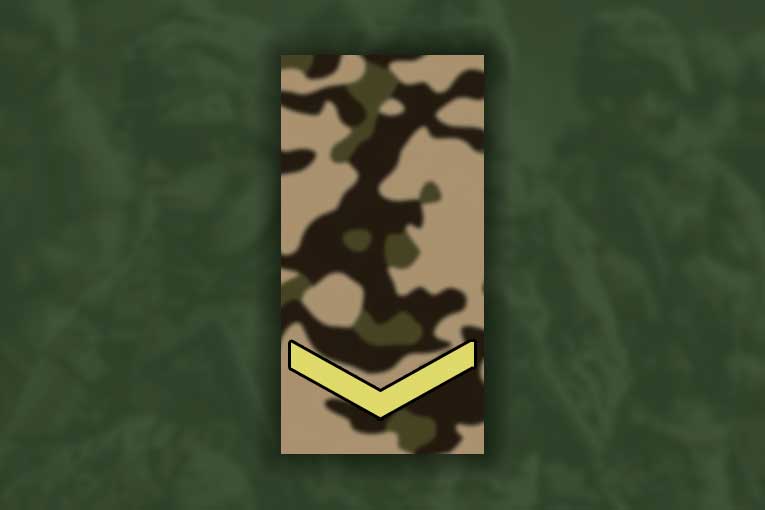
Lance Corporal is the first step into a leadership role. They assist in the supervision of Privates, offering guidance and support.
Their duties involve executing orders, maintaining discipline, and leading small teams.
Lance Corporals are expected to set an example for their peers, demonstrating proficiency in their role.
This rank marks the initial phase of taking on responsibilities beyond basic soldiering, providing valuable leadership experience.
Advancement to this position requires a combination of time in service, performance, and successful completion of required training.
Corporal
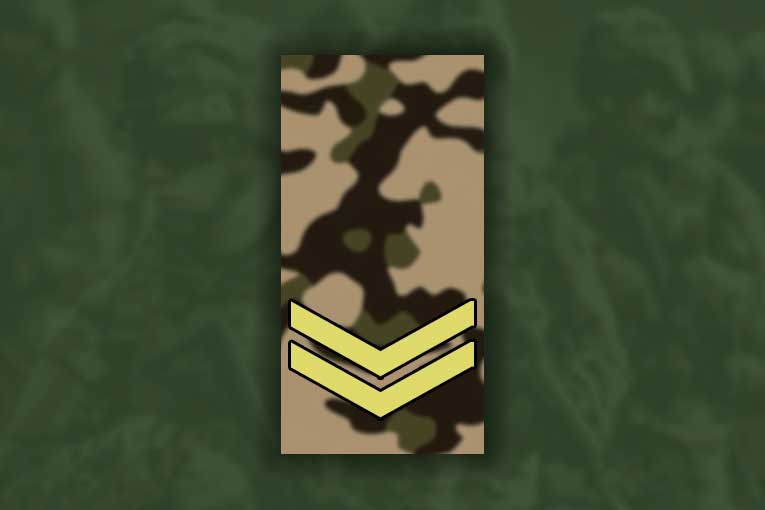
Corporals serve as team leaders, responsible for managing a small group of soldiers.
They play a pivotal role in executing the orders of higher-ranking officers, ensuring the efficient functioning of their team.
Corporals are tasked with mentoring and guiding their subordinates, maintaining discipline, and overseeing training activities.
Their leadership skills are honed through experience, and they are essential in fostering a cohesive and effective unit.
Promotion to Corporal is based on a combination of merit, experience, and successful completion of required training.
Sergeant
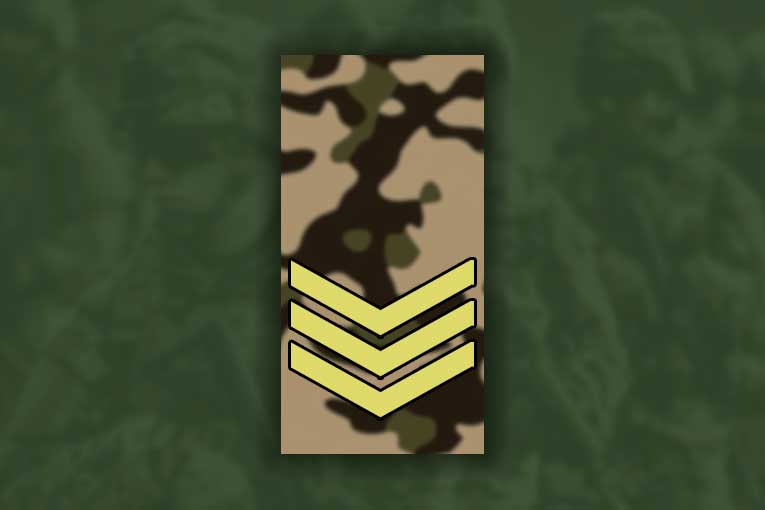
Sergeants are key figures in the British Army, entrusted with leading and managing a platoon.
They play a central role in executing the orders of higher-ranking officers while ensuring discipline and cohesion within their unit.
Sergeants are seasoned leaders responsible for the professional development of their subordinates.
They oversee training, provide guidance, and act as a bridge between officers and enlisted personnel.
The rank of Sergeant signifies experience, expertise, and a commitment to the welfare and success of the soldiers under their command.
Promotion to Sergeant is based on a combination of merit, leadership skills, and service duration.
Staff Sergeant
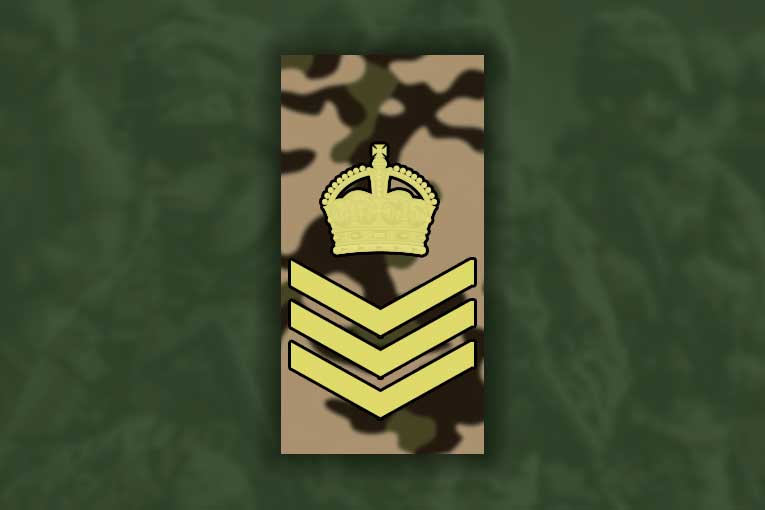
Staff Sergeants in the British Army hold a crucial position, often serving as platoon sergeants or in various technical roles.
They are seasoned leaders responsible for training, discipline, and welfare within their unit.
Staff Sergeants work closely with officers to ensure the smooth execution of orders and provide vital expertise.
They play a key role in the professional development of soldiers, overseeing training programs and mentoring junior ranks.
Promotion to Staff Sergeant is based on a combination of experience, merit, and leadership capabilities, showcasing a commitment to excellence in service.
Warrant Officer Class 2
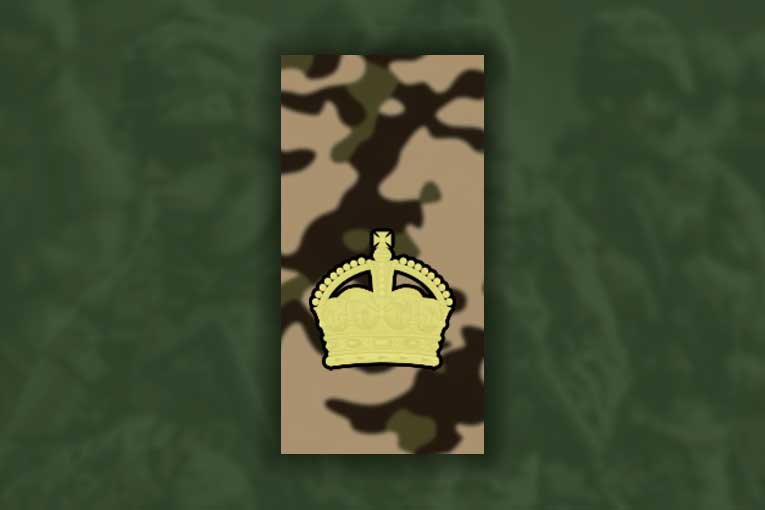
Warrant Officers Class 2 (WO2) in the British Army are experienced non-commissioned officers holding significant leadership roles.
They act as a bridge between commissioned officers and enlisted personnel, offering guidance and expertise.
WO2s often serve as Company Sergeant Majors, Regimental Quartermaster Sergeants, or in other specialised positions.
Their duties include maintaining discipline, advising officers on matters related to soldiers, and ensuring the operational readiness of their unit.
Warrant Officers Class 2 are respected for their wealth of experience and play a vital role in the effective functioning of the British Army.
Warrant Officer Class 1
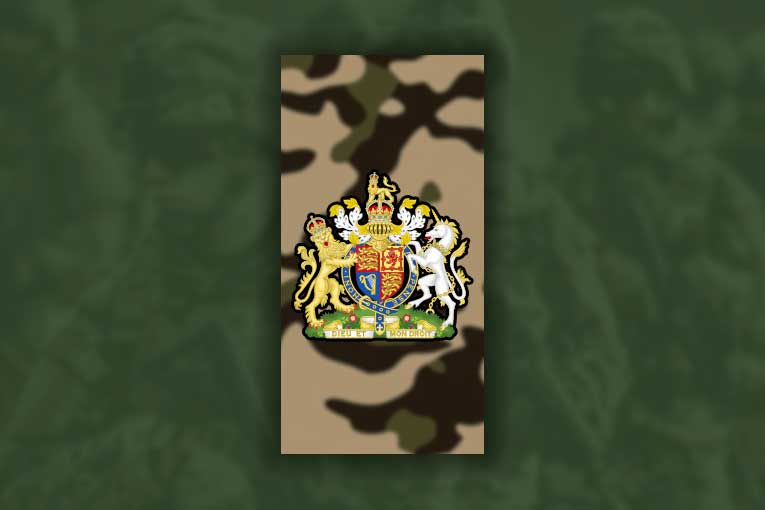
Warrant Officers Class 1 (WO1) hold the highest non-commissioned rank in the British Army.
Recognised for their extensive experience and leadership, they serve as senior advisors to commanding officers. WO1s are responsible for maintaining discipline, fostering morale, and providing guidance on personnel matters.
They play a pivotal part in the day-to-day operations and decision-making processes.
Warrant Officers Class 1 embody the pinnacle of non-commissioned officer leadership and contribute significantly to the overall effectiveness of the British Army.
Officer British Army Ranks
Officer Cadet
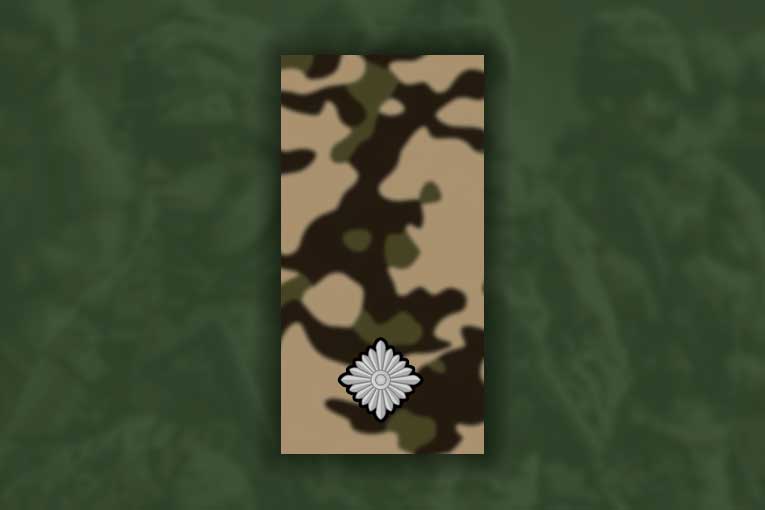
Officer Cadets are individuals undergoing training to become commissioned officers in the British Army.
As aspirants to leadership roles, they partake in the Regular Commissioning Course or Army Reserve Commissioning Course.
Officer Cadets receive intensive instruction in military skills, leadership, and administration.
Their duties include mastering military tactics, physical fitness, and academic studies.
Undergoing various assessments, Officer Cadets develop the qualities required for effective leadership.
Upon successful completion, they are commissioned as Second Lieutenants, prepared to take on responsibilities as officers in the British Army
Second Lieutenant
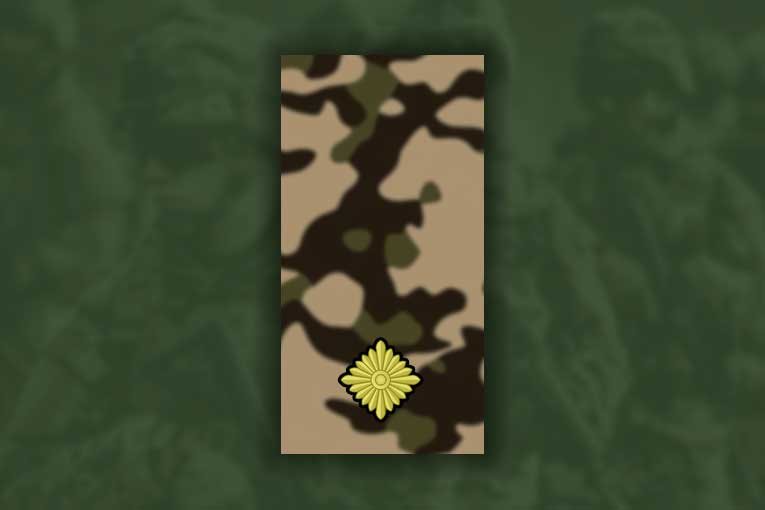
Second Lieutenants are junior commissioned officers in the British Army.
Newly commissioned after completing training, they are responsible for leading small groups of soldiers.
Their duties include tactical planning, training, and administrative tasks.
Second Lieutenants are expected to learn from more experienced officers and non-commissioned officers as they develop their leadership skills.
As they gain experience, they progress to higher ranks, taking on more significant responsibilities within the military hierarchy.
Their role is crucial in bridging the gap between enlisted soldiers and higher-ranking officers.
Lieutenant
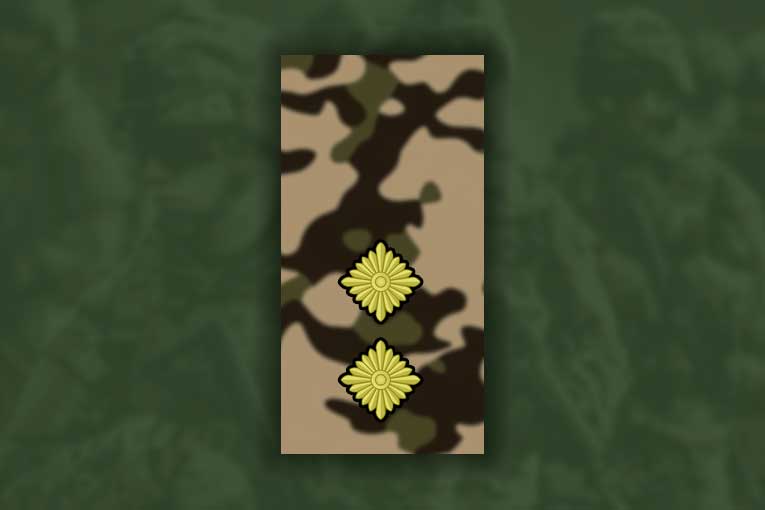
Lieutenants in the British Army hold a more senior position among junior officers.
They are responsible for leading platoons or sections of soldiers, contributing to tactical planning, and managing day-to-day operations.
Lieutenants serve as a bridge between enlisted personnel and higher-ranking officers, overseeing training and ensuring the execution of orders.
As they gain experience, Lieutenants may take on more complex leadership roles.
Their duties encompass a range of responsibilities, reflecting their pivotal role in the officer corps and their progression toward higher ranks in the military hierarchy.
Captain
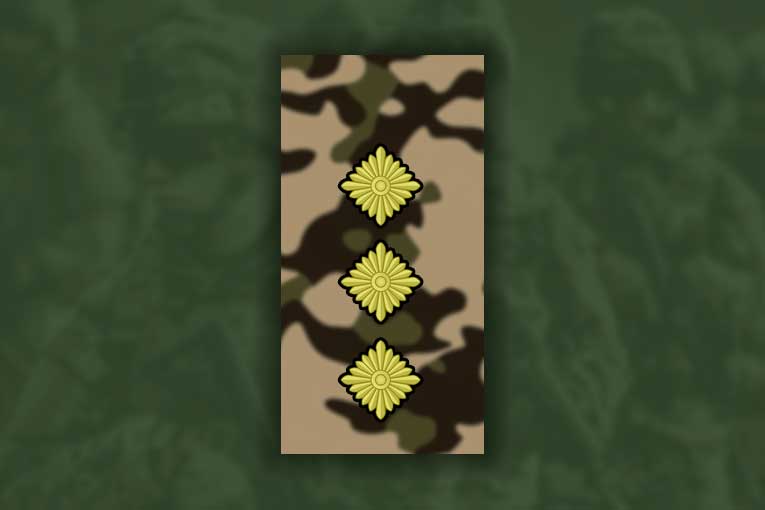
Captains in the British Army hold a crucial mid-level officer rank. They lead and command companies, which typically consist of about 100 soldiers.
Captains are responsible for planning and executing missions, managing resources, and ensuring the welfare and discipline of their troops.
With a focus on tactical leadership, Captains play a pivotal role in the overall effectiveness of a unit.
Their responsibilities include training, administration, and liaising with higher-ranking officers to convey the needs and status of their company.
Captains often serve as a vital link between junior officers and senior command.
Major
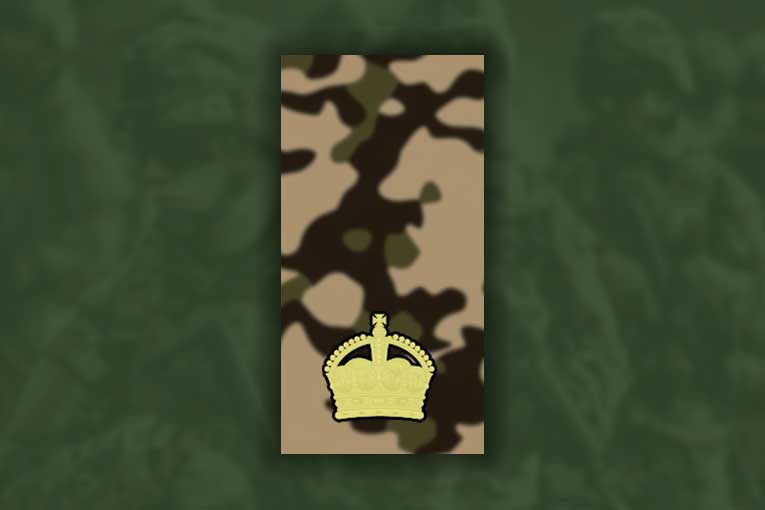
The rank of Major in the British Army represents a significant leap in leadership responsibilities.
Typically commanding sub-units like a squadron or a company, Majors are responsible for planning and executing military operations.
They play a vital role in coordinating with higher-ranking officers to implement strategic plans, ensure the welfare of their troops, and maintain discipline within their unit.
Majors serve as key decision-makers on the battlefield, contributing to the overall success of missions.
Their role involves strategic thinking, effective communication, and the ability to adapt to dynamic and challenging situations.
Lieutenant Colonel
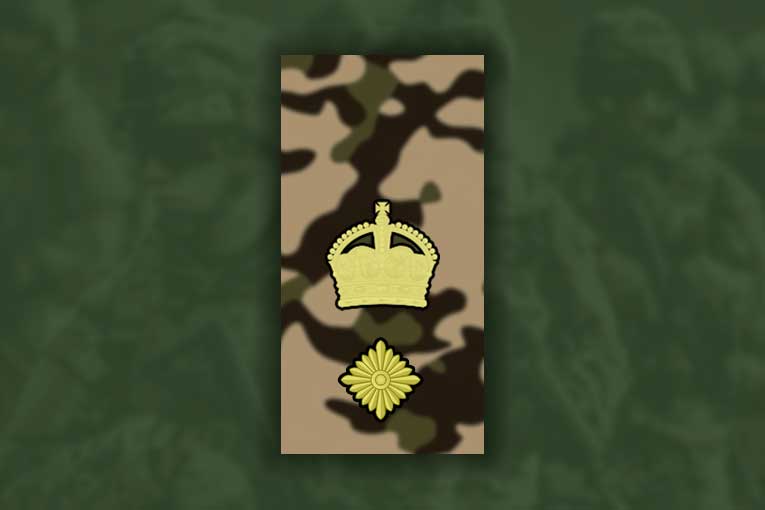
The rank of Lieutenant Colonel in the British Army signifies a senior officer responsible for leading larger military units, often at the battalion or regiment level.
Their duties include overseeing training, operations, and ensuring the welfare of their troops.
Lieutenant Colonels play a crucial role in implementing strategic plans, liaising with higher-ranking officers, and providing expert advice on military matters.
Their leadership extends to mentoring junior officers, maintaining discipline, and fostering a cohesive unit.
With a wealth of experience, Lieutenant Colonels contribute significantly to the success of military campaigns and operations.
Colonel
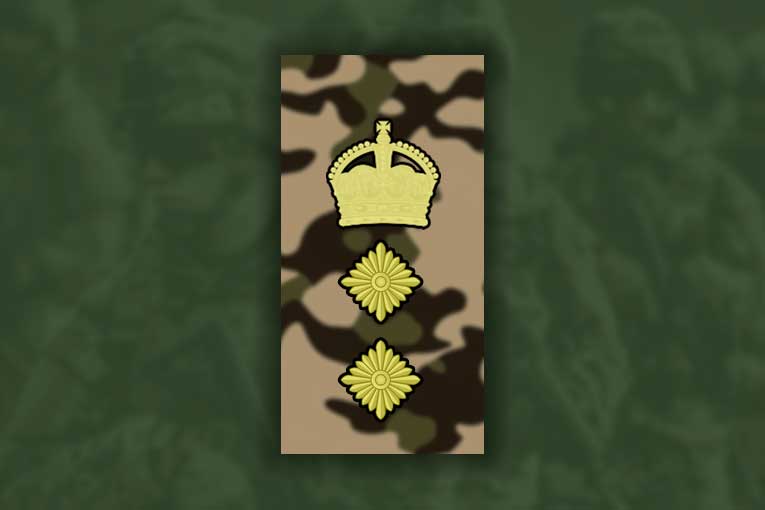
Colonels in the British Army hold a senior officer rank responsible for commanding and managing various military units.
They play pivotal roles in planning and executing operational strategies, ensuring the readiness of their units, and overseeing training programs.
Colonels act as key liaisons between higher-ranking officers and their subordinates, contributing to the efficient functioning of military structures.
Their duties encompass administrative responsibilities, mentorship of junior officers, and maintaining discipline within the units.
With a wealth of experience, Colonels play a vital role in fostering effective leadership and decision-making within the military hierarchy.
Brigadier (1 Star)
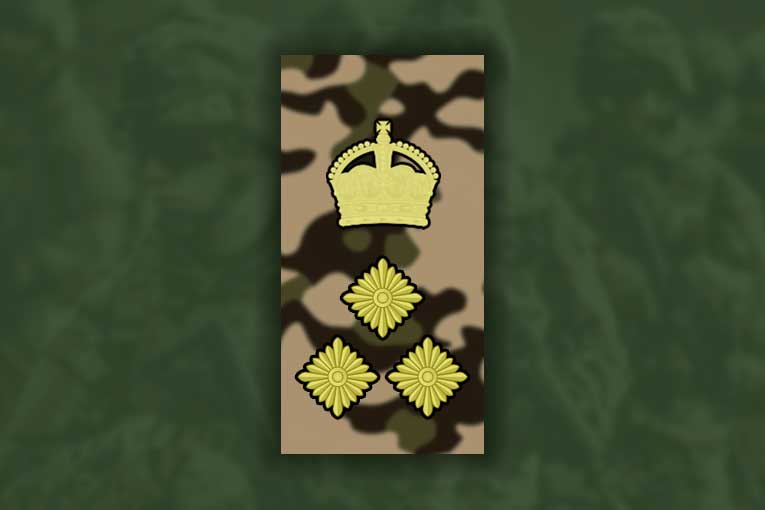
A Brigadier in the British Army holds a one-star rank and serves as a senior officer responsible for commanding brigades or serving in key staff positions.
They play critical roles in planning and executing military operations, ensuring the readiness and effectiveness of their assigned forces.
Brigadiers contribute to strategic decision-making, oversee training programs, and maintain discipline within their units.
With significant experience, they provide valuable leadership, often acting as a bridge between higher-ranking officers and frontline commanders, ensuring the smooth functioning of military operations.
Major General (2 Star)
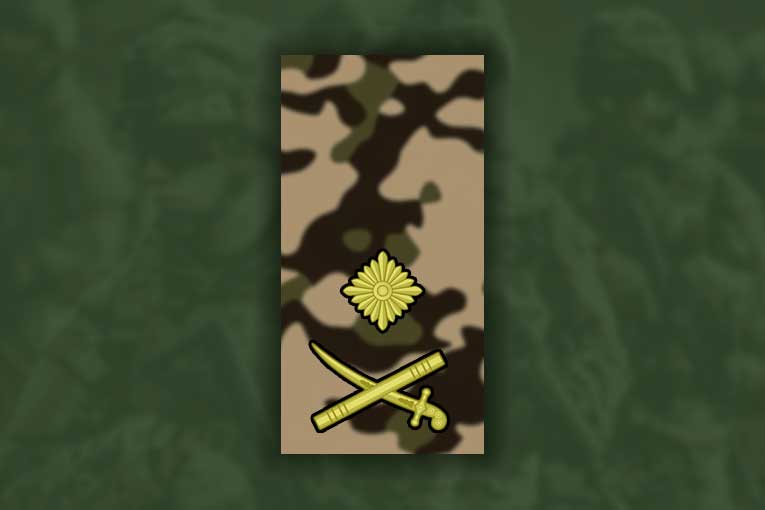
As a two-star rank in the British Army, a Major General assumes crucial responsibilities within the military hierarchy.
They often serve as divisional commanders or hold key staff positions, contributing to the strategic planning and execution of large-scale operations.
Major Generals play a pivotal role in coordinating forces, ensuring effective communication between various units, and providing leadership to achieve operational objectives.
With a wealth of experience, they contribute to shaping military policies, mentoring junior officers, and maintaining the overall efficiency and readiness of their assigned formations.
Lieutenant General (3 Star)
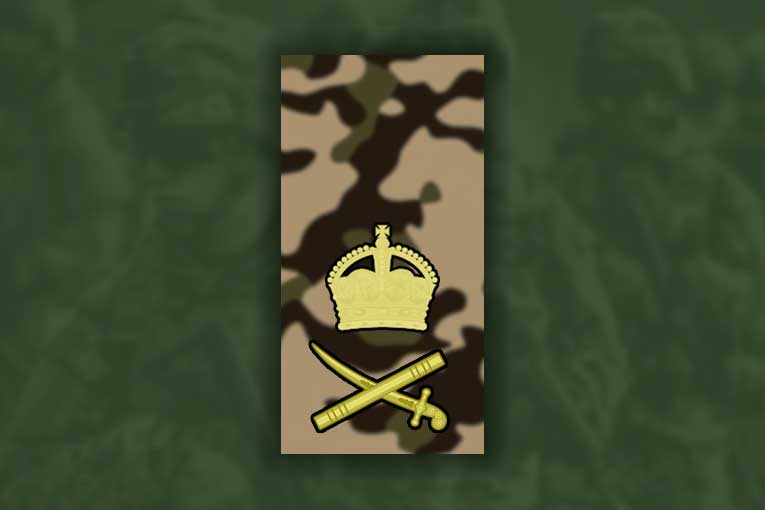
As a three-star rank in the British Army, a Lieutenant General holds a position of significant authority and responsibility.
Typically serving as a corps commander or in high-level staff roles, they contribute to strategic planning and decision-making. Lieutenant Generals oversee the execution of military operations, ensuring effective coordination and communication across multiple units.
With extensive experience, they play a key role in shaping military strategy, providing leadership, and influencing policy development.
Their responsibilities encompass a broad spectrum, from training and readiness to strategic deployment, contributing to the overall effectiveness of the armed forces.
General (4 Star)
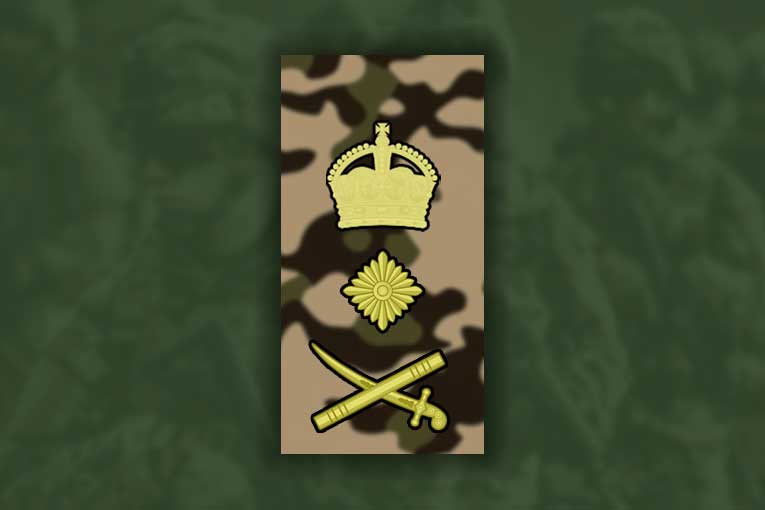
As the highest-ranking military officer in the British Army, a General with a four-star designation holds a position of utmost authority and leadership.
Responsible for overseeing the entire military establishment, Generals at this level contribute to national defence strategy, policy development, and decision-making at the highest levels.
Their duties involve strategic planning, ensuring the readiness of the armed forces, and providing counsel to political leaders.
Generals with a four-star rank play a pivotal role in shaping the overall direction and capabilities of the British military, influencing both national and international security.
Field Marshal
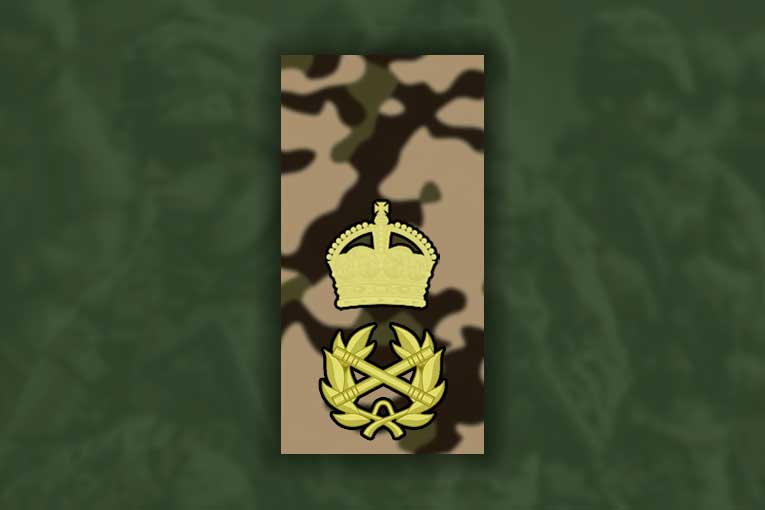
Field Marshal is an honorary and ceremonial rank in the British Army, the highest attainable.
While it holds immense historical significance, this rank is no longer used for active-duty officers.
The last promotion to Field Marshal occurred in 1994.
Individuals elevated to this esteemed position typically have a distinguished military career, marked by significant contributions to strategy, leadership, and national defence.
Field Marshals may participate in ceremonial and state functions, symbolising the culmination of a lifetime of exemplary service and leadership within the military.
How do you Join the Army?
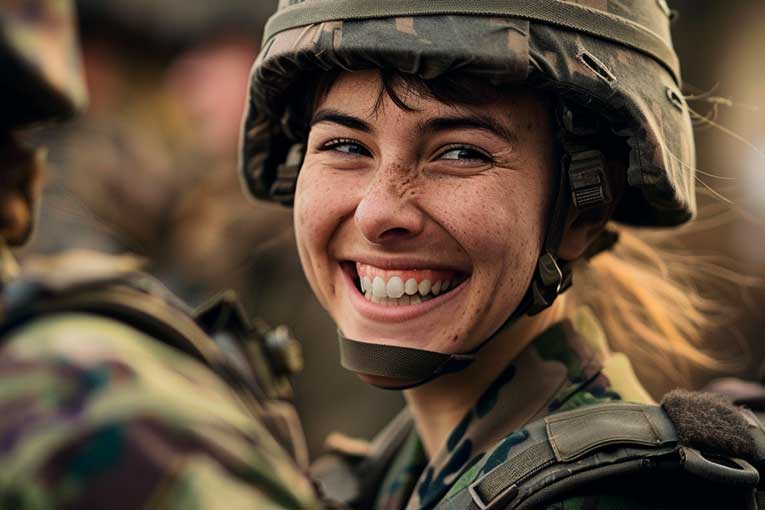
Joining the British Army involves a structured process designed to assess individuals’ suitability and commitment to military service.
Here’s a simplified overview:
Eligibility Check
Prospective recruits must meet basic eligibility criteria, including age, nationality, and health standards.
Recruitment Office
Visit a local Army Careers Centre or contact the recruitment office to express interest.
This is an opportunity to discuss options, roles, and ask questions.
Application Process
Complete the application forms, detailing personal information, education, and employment history.
Applicants may choose a preferred role and trade.
Selection Process
Attend an Assessment Centre where candidates undergo a series of physical and mental assessments, including interviews and aptitude tests.
Medical Examination
A comprehensive medical examination ensures candidates meet the required health standards for military service.
Interview
An interview with a military careers advisor helps assess motivation, commitment, and suitability for specific roles.
Selection Board
Certain roles require attendance at a Selection Board, where candidates demonstrate leadership potential, team skills, and decision-making.
Offer of Employment
Successful candidates receive an offer of employment, detailing terms and conditions.
Basic Training
Recruits undergo basic training, where they learn essential military skills and adapt to military life.
Specialised Training
Following basic training, soldiers undergo specialised training based on their chosen trade or role.
Conclusion
The British Army ranks structure serves as the backbone of a proud tradition rooted in discipline, leadership, and unwavering service.
It is a hierarchical system that reflects not only the evolution of military strategy but also the values that define the armed forces.
From the resilient soldiers at the forefront, executing essential duties with dedication, to the strategic acumen exhibited by officers guiding the way, each rank is a testament to the multifaceted nature of military service.
Together, they form a cohesive unit, demonstrating the synergy required to safeguard the nation and fulfil the army’s mission.
This structured hierarchy fosters a culture of respect, responsibility, and duty, creating a formidable force ready to face challenges and uphold the principles that have shaped the British Army throughout its storied history.
https://securityjournaluk.com/british-army-ranks/
Published: 2024 05 01 07:00:00
Received: 2024 05 01 07:07:47
Feed: Security Journal UK
Source: Security Journal UK
Category: Security
Topic: Security
Views: 21
